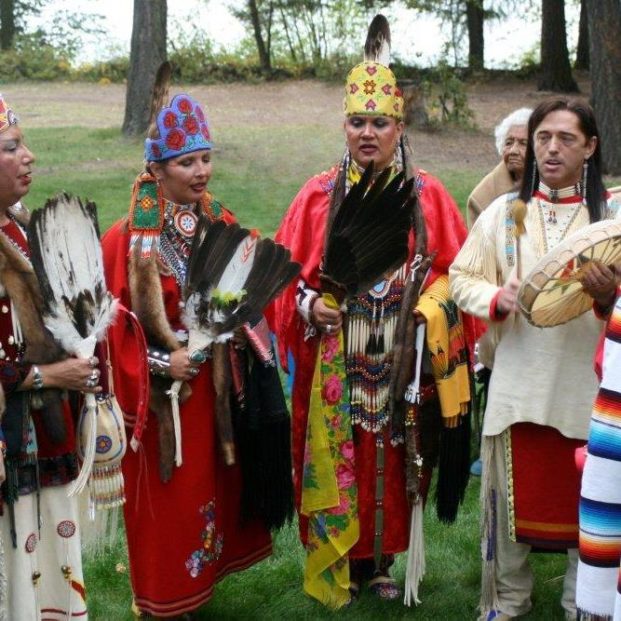Earlier this month, I had the opportunity to attend a White House Roundtable discussion on issues affecting Two Spirit people that took place at Daybreak Star Indian Cultural Center in Seattle. It was such an honor to be invited to participate as a Two Spirit person representing Pride Foundation.
Valerie Jarrett, a senior advisor to President Obama, arrived with other administration officials early afternoon of September 4th to meet with fifteen Two Spirit community leaders from around the Northwest region. These leaders represented various Native focused organizations including past Pride Foundation grantees: Northwest Two Spirit Society, Montana Two Spirit Society, and the Indigenous Ways of Knowing Program at Lewis and Clark University.
The discussion was brief, lasting only one hour. However, the number of topics raised and wealth of personal stories shared in the session was indicative of how widely and deeply this topic is felt and the urgency at which it should be addressed. We are just scratching the surface as we develop ideas on how to solve: homelessness amongst Two Spirit youth and elders, lack of funding for educational tools specific to our Native and Non-Native people, equality issues, discrimination, and drug and alcohol abuse, to name a few.
These concerns and personal stories were shared with Valerie and the attending administration officials with the hopes of future conversations and support that could lead to a more vibrant and healthy Two Spirit community on and off the reservation.
As Two Spirit people work to decolonize their history, they are bringing into light the true antiquity of being an integral part of native society. Prior to colonization, several Nations had a place for Two Spirit people. They were honored and respected for their contributions to their communities as healers, name givers, counselors, artist, matchmakers, strong warriors, and much more. However, after colonization, many of Two Spirit people were forced to change their societal roles and to dress and look as their respective gender. If they did not conform, they would be beaten or even killed. In many cases, tribal leaders were forced to send their Two Spirit people away to protect the whole tribe from violence and devastation. The culture and history of Two Spirit people was nearly destroyed.
Today, those who suffered such horrific treatment and cultural appropriations that has lasted over a century are trying to find their path in life. They struggle to fit into two completely different cultures with different values. One that took them away from their family and community, and one that is of their own nation who either does not remember, or want to remember, the role Two Spirit people had in their cultural history. This results in Two Spirit people being told they do not belong. The absence of support adds to the many struggles and difficulties that Two Spirit people face as they try to identify with their own sexuality and way of being in their native culture and in the Western culture.
I hope that these conversations with White House staff continue to help push policy changes on the national and local level in support of Native communities and Two Spirit people. We have a long way to go in addressing these issues and in creating better circumstances for Two Spirit people. This Roundtable was a valuable step forward.
Gunner Scott is Pride Foundation’s Director of Programs. Email Gunner.
